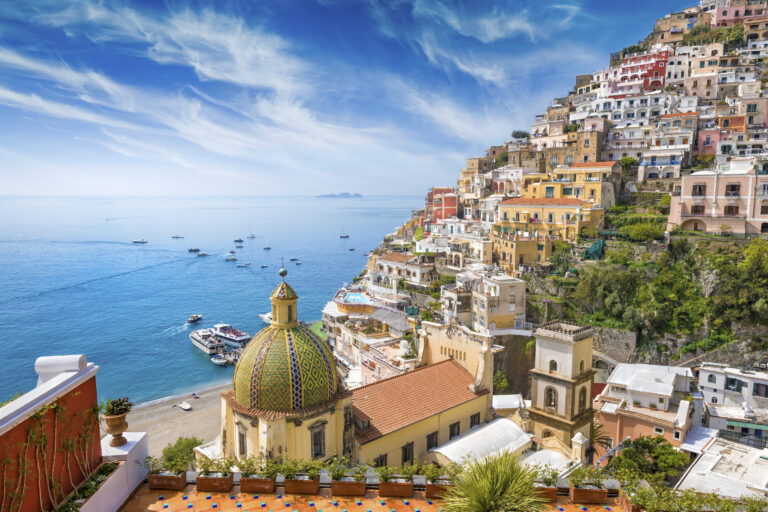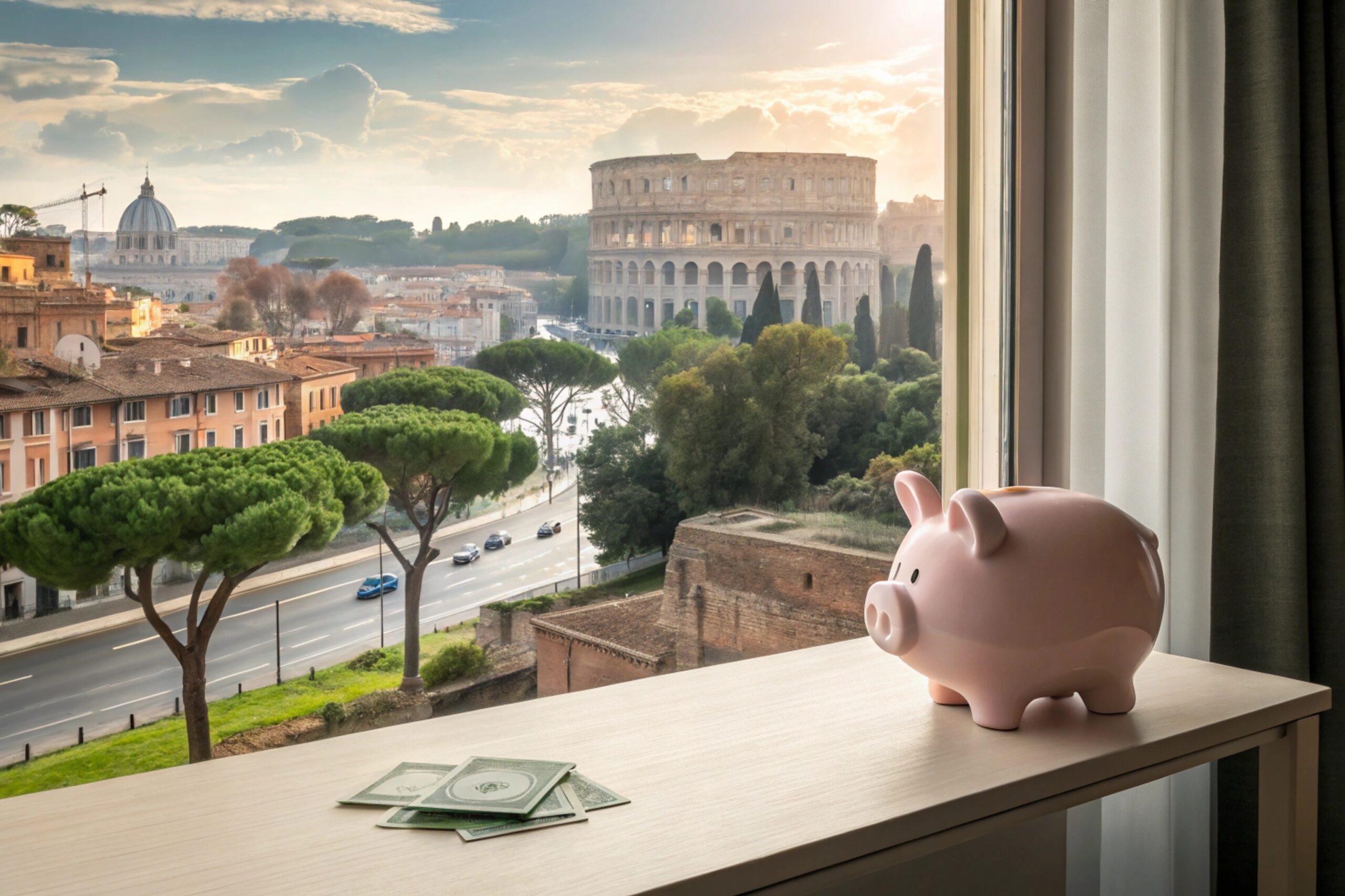
Optimize Your Budget in Rome: Tips and Tricks
Optimizing your budget during a stay in Rome is essential to fully enjoy the city without excessive spending. Bank charges and hidden costs associated with payments can quickly increase traveler expenses. In this article, we offer you practical advice on choosing the best payment methods, avoiding exchange fees, and protecting yourself against unpleasant surprises. Whether you prefer cash, bank cards, or digital solutions, discover the tips to stay in control of your finances and enjoy a hassle-free stay in Rome.
- What are the best economical transportation options in Rome?
- Which museums or sites are free in Rome?
- Are there advantageous tourist cards or passes?
- Where to eat in Rome without spending too much?
- Are skip-the-line tickets essential?
- How to find quality accommodation at an affordable price?
- How to avoid extra charges in restaurants?
- What are the best affordable souvenirs to bring back?
- How to avoid exchange fees in Rome?
What are the best economical transportation options in Rome?
Rome’s public transport network is very well-developed with buses, trams, and metro lines. A standard ticket costs approximately €1.50 for a 100-minute journey. You can also opt for a daily pass at €7 or a weekly pass at €24. For nearby sites, walking remains the best option, as Rome is compact and its streets are picturesque. Finally, avoid taxis or ride-sharing services, which are more expensive. Self-service bikes or scooters can also be a cheap option for short trips.
To learn more, consult our section dedicated to Best Transportation Methods in Rome.

Which museums or sites are free in Rome?
Many sites in Rome are free, as well as churches (including St. Peter’s in the Vatican), and most of the famous squares (Piazza Navona, Piazza di Spagna). On the first Sunday of each month, public museums (including the Colosseum and the Roman Forum) are free. Entry to the Vatican Museums is also free every last Sunday of the month. Be aware, however, of the crowds on free days. Enjoy walks to explore the open-air Roman remains, such as the Circus Maximus or the Baths of Caracalla.
All the details are available in our Guide to the best free sites in Rome.
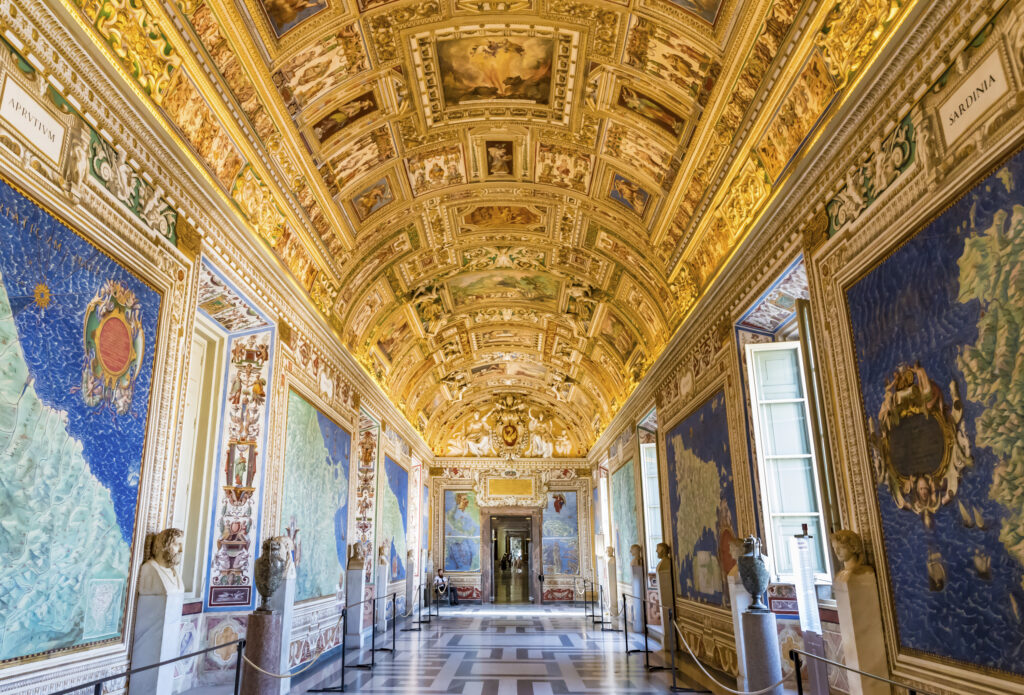
Are there advantageous tourist cards or passes?
Yes, there are several tourist passes for Rome that can, if used correctly, save you money and simplify your life.
We tell you everything in our dedicated article:

Where to eat in Rome without spending too much?
To eat in Rome inexpensively, stay away from tourist areas. Head towards popular neighborhoods like Testaccio or Trastevere, where local trattorias and pizzerias offer delicious dishes at affordable prices. Choose classic Roman dishes like pasta (Cacio e Pepe, Carbonara) or pizza al taglio (pizza by the slice). ‘Alimentari’ (grocery stores) are also a good way to get sandwiches or takeaway meals for a small price. Avoid restaurants in tourist squares where prices are often inflated.
If you still want to eat near tourist sites, we suggest several affordable restaurants.
Are skip-the-line tickets essential?
Skip-the-line tickets are not essential but can be a good investment in Rome, especially for very busy sites such as the Colosseum, the Vatican, or the Capitoline Museum. During the peak tourist season, queues can be long, sometimes reaching several hours. Buying skip-the-line tickets online allows you to maximize your time and avoid waiting. If you are flexible with your schedule and prefer to save money, visiting early in the morning or late in the afternoon can also reduce waiting time.
How to find quality accommodation at an affordable price?
To find affordable accommodation in Rome, favor neighborhoods outside the historical center, such as San Giovanni, Testaccio, or Pigneto. These areas offer good hotels and hostels at lower prices than those in the center. Sites like Airbnb also offer apartment or room rentals at competitive rates. Booking in advance, especially during the off-season, allows you to benefit from better rates. Also consider B&Bs, which offer simple but welcoming comfort at a good price.
Discover the range of accommodation options in detail by consulting our section Where to sleep in Rome.
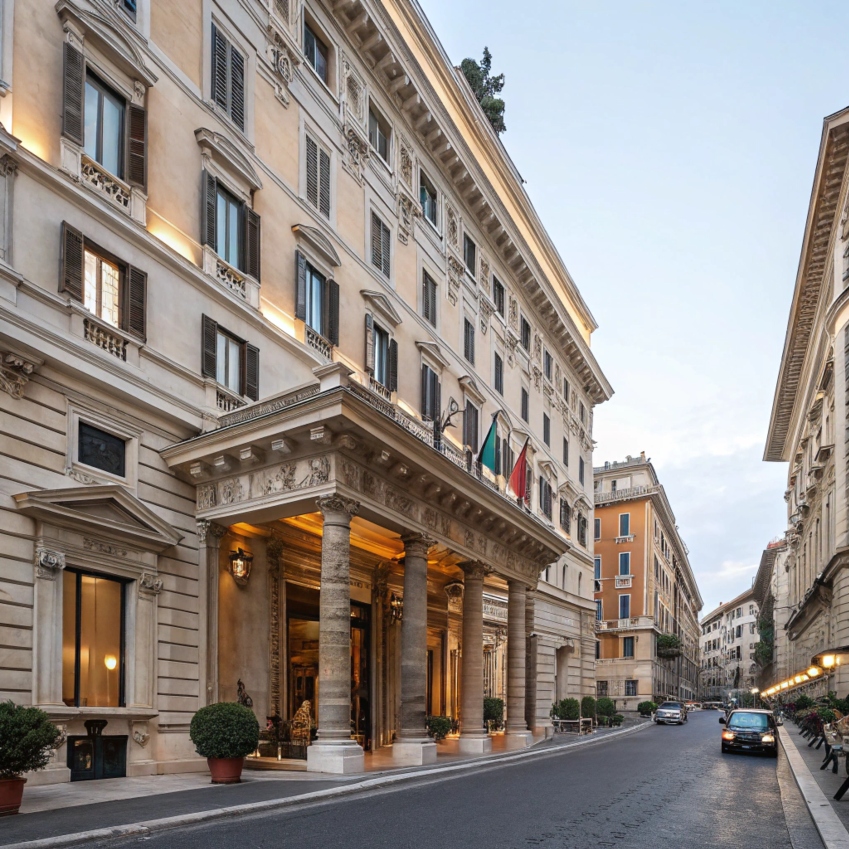
How to avoid extra charges in restaurants?
To avoid extra charges in Roman restaurants, be aware of practices such as the “coperto” (cover charge) or “servizio” (service charge) that can be added to the bill. To avoid them, always check the menu before sitting down and ask for clarification if necessary. Prefer places where these charges are not applied. Bars and cafes can also charge more if you consume on the terrace rather than at the counter, so always ask before sitting down.

What are the best affordable souvenirs to bring back?
Affordable souvenirs in Rome include local food products such as artisanal pasta, sauces, or Italian coffee. Local markets also offer quality spices or olive oils at good prices. For more traditional souvenirs, you can opt for miniatures of Roman monuments, religious items, or mosaics. Avoid tourist shops near major attractions, where prices are often exaggerated. Instead, explore small shops in local neighborhoods.
How to avoid exchange fees in Rome?
In Rome, the currency used is the Euro. If this is not your usual currency, exchange fees may apply to convert your money into euros. To avoid or minimize exchange fees in Rome, use bank cards with no foreign transaction fees, such as those offered by online banks or fintechs. We recommend the following 3 fintechs: Wise, Revolut, or N26. All 3 offer free debit cards. These cards generally apply the real exchange rate without extra costs.
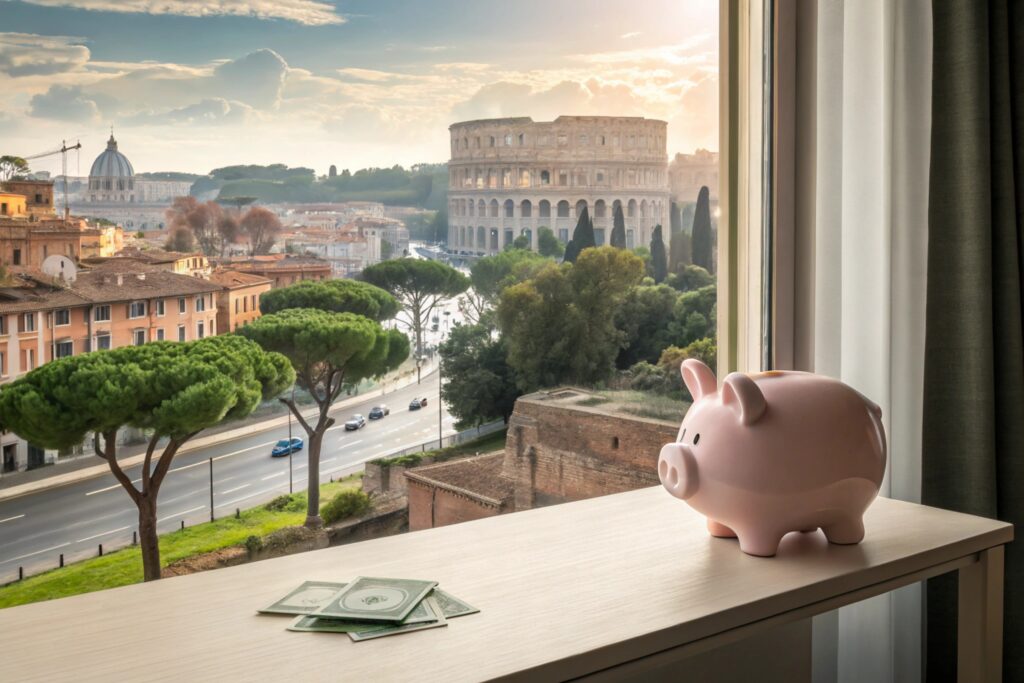
Install the Wise app using our referral link and automatically get a discount on your first money transfer! Install the Wise app now
When withdrawing money from an ATM, always choose to pay in euros rather than letting the machine do the conversion, as this avoids unfavorable exchange rates.
Avoid currency exchange offices, which often charge high commissions. Finally, plan your expenses in advance to limit frequent withdrawals.
In Rome, every corner is a testament to the past. However, managing your budget wisely is crucial. The euro is the local currency, and while cards are widely accepted, having cash allows you to enjoy the little things, like a gelato in a lively square.
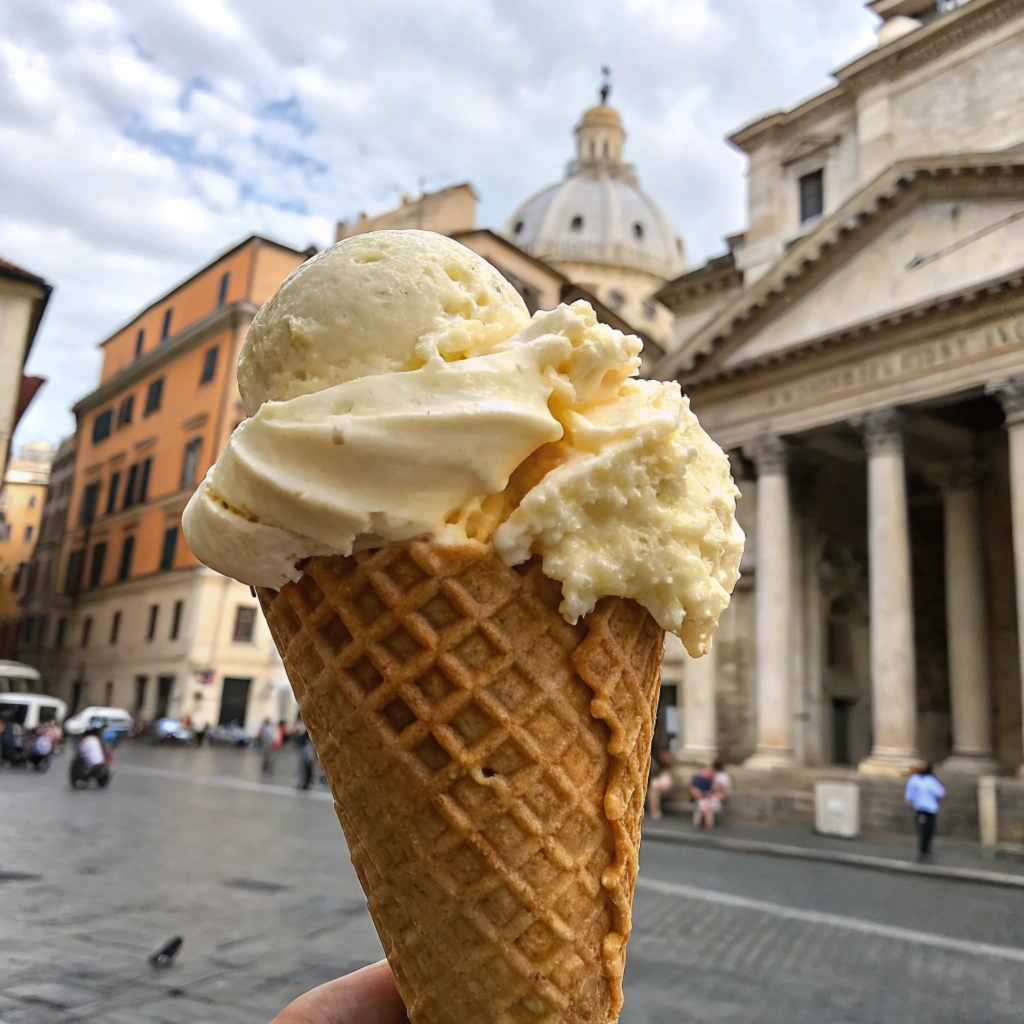
Traveling to Rome can be a memorable experience without necessarily breaking the bank. By carefully planning your payment methods and avoiding the pitfalls of bank fees, you can enjoy the Eternal City stress-free. Remember to use fee-free cards abroad such as Wise, anticipate your cash needs, and choose modern payment solutions to maximize your budget. Follow our tips to keep your finances under control and make your trip to Rome a moment of pleasure without financial worries.
Feel free to share your experiences or tips on Rome by leaving a comment below. Thank you for your participation and have a great trip to Rome!
Now that you know how to best manage your expenses, also take advantage of our Guide to the best free sites in Rome and discover all our itinerary suggestions to plan your stay and have an unforgettable experience in Rome!



